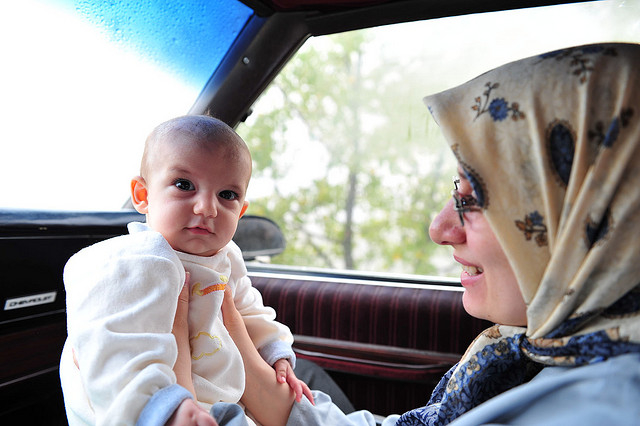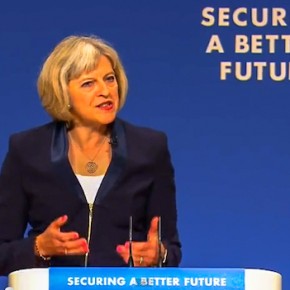It may come as a surprise to see an Islamic country allowing married couples to make ‘designer babies’ by giving them a choice to choose the gender of their child under the ‘gender selection’ or PGD (Pre-implantation Gender Diagnosis) process.
Since clerics in Iran issued a fatwa in favour of ARTs (Assisted Reproductive Technologies,) there has been a wide range of clinics which perform different aspects of ARTs, including PGD, and it has become widely popular within the country’s middle class. Despite its wide practice, Iran’s legislature has not yet given an opinion on the issue.
In the European Union, PGD is not allowed to be performed for the purpose of solely wanting to choose the gender of a child. In the United Kingdom, for example, gender selection was made illegal in October 2009, after the government amended the Human Fertilisation and Embryology Act 1990. Under this legislation, gender selection is only allowed for medical reasons, such as to avoid the risk of a child being born with a sex-linked genetic disorder.
The case which put gender selection onto Britain’s policy agenda was that of a Masterton couple, who had a 3-year old daughter named Nichole. Nichole suffered severe burns after a gas balloon fell onto a bonfire in their garden. She died two months later, after which it had emerged that the Mastertons wanted to have another daughter by using embryonic sex selection for social reasons, since they already had four sons. Yet, since it was not for the purpose of disease avoidance, they were not allowed to do so in the UK.

Iran, on the other hand, has never actually enacted a ‘gender selection act’ as such, and at the same time, it has never issued a ban on it either. As a result, clinics and hospitals offer PGD for social as well as disease avoidance reasons. But what motivates Iranian lawmakers to be silent on this issue?
When speaking to medical students at Tehran University, they had some interesting things to say about PGD’s wide practice in the country. Sanaz, who is a female student commented, “I don’t agree with it, because we should not intervene with what God has planned for us. It will also disrupt the gender balance ratio.” Sanaz’s belief was that genetic engineering is seen as crossing a moral boundary, because it extends too much control to parents, by allowing them to almost ‘play God’.
In contrast to Sanaz, Meysam, a male student, had a less conservative approach. “I think it is great that it is allowed. It just shows the West how advanced and open-minded we are in science and technology.” Meysam then told me that he has more of a ‘libertarian’ approach in which he favours a ‘free market’ in sex selection.
Some argue that allowing PGD is good for the future of Iran, because it can give some strength to the population. This is because, if couples know that they have the freedom to choose the gender of their child, perhaps they will be more likely to have a child in the first place.

Without any hesitation, Iranian hardliners expressed their ‘desire for a son’. There were a number of billboards in the capital, which juxtaposed an image of a father with five children (four boys and one girl) as ‘happy’ with another father who only has one child (a son) as ‘unhappy’. What is significant about these billboards, is that we see more boys than girls, which echoes their desires for increasing the male population in Iran.
Iranians constantly hear the Supreme Leader encouraging married couples to have more children. Ali Khamenei has stated that the population should move towards at least 150 million people. Although the economic situation in the country is deteriorating, it is said that government officials have discussed offering gold coins to newborns, in order to encourage a higher birth rate.
“A gold coin won’t change couples’ calculations…many young Iranians prefer to continue their studies,” said Mohammad Abbasi, head of the Demographics Department at Tehran University told the New York Times. “Lack of financial ability to buy a house and meet expenses are among other reasons why the youth have no interest in raising many children.”
A physician I spoke to, who has been performing PGD for six years, said that she is not worried about the fact that Iran has not yet issued a ban on gender selection.
“Gender selection needs effort and money, and most of my patients come from a middle class background that want to achieve a ‘family balance’. If PGD will be free of cost, that is when I will worry about the future of Iran and its disruption in the gender balance ratio. For now,” Dr Matini stated, “all I worry about is the population, which is declining. But I don’t blame couples who don’t want to have any children, because raising a child in this tight financial situation, due to the foreign sanctions, can be challenging.”
Despite its widespread practice, PGD inevitably raises ethical and social issues, such as how it promotes sexism. Furthermore, it favours those with a wealthier background, as it is seen as more of a ‘luxury’ rather than significantly changing the status of one’s life, such as the various treatments for infertility that are available to Iranians. It’s a truly unique situation, particularly for a highly religious country. Nonetheless, the lack of any legal rulings on procedure indicates that there is a serious need for legislation in this area.
Though it may push towards a conservative resolution to the issue, one which favors the positions of Iranian hardliners, there’s every reason to believe that legislation might also address the moral questions raised by gender selection.
Photograph courtesy of Hamed Saber, Hermidas Sab., and UNICEFIRAN. Published under a Creative Commons license.





